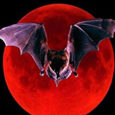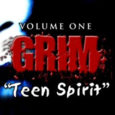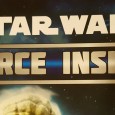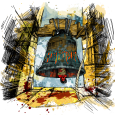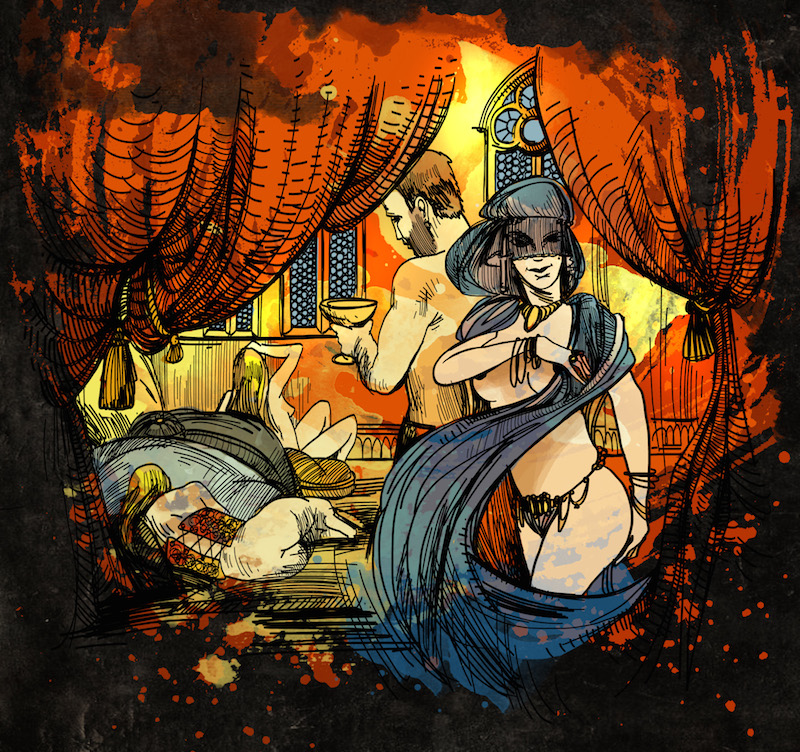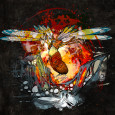Richard Morgan’s ‘A Land Fit for Heroes’ is out now on Mobile with a dizzying plot and grim anti-heroes for those who are ready to embrace all that is dark and violent in the fantasy genre!
Gollancz, an imprint of the Orion Publishing Group, with indie developer Liber Primus Games, today released their joint project – an addictive multiplayer gamebook, the first of its kind, set in the world of award-winning novelist and Crysis 2 and Syndicate writer Richard Morgan’s Sword and Sorcery trilogy A Land Fit for Heroes.
“I am delighted to announce that the ‘Land Fit for Heroes’ gamebook is now out.” said author Richard Morgan, “It’s great to see the world I created for these books come to fresh life in a digital game-book format. I think all fantasy fans are going to appreciate having the power in their hands to choose the destiny of these new characters and to explore the world beyond the limits of the original story.”
A Land Fit for Heroes is a gripping story of three wholly new characters and a sequence of bloodthirsty events steeped in mystery and gore. It is not your average gamebook; A Land Fit for Heroes is darker and deeper than the gamebook norm, explicit in matters of both sex and violence, targeted primarily at a mature audience. The main characters are not traditional heroes but outcasts with scarred souls and murky pasts. This is a story and character design with a truly dark twist; readers may be shocked but they will still be enthralled by Morgan’s rich and mysterious dark fantasy tapestry, presented in a fresh and entirely unique format.
In another first for the gamebook format players will get to choose not only the acts but the sexual orientation of their chosen character, a facet which reflects the diverse character traits and personal choices made by characters in the novels.
This grim fantasy title which represents the first book in the trilogy is now available on the Play Store for Android devices, the App Store for iPhone, iPad, iTouch and additionally on Amazon for Kindle Fire. Steam for Windows PC will launch closer to Christmas in late December. Let us know what you think!
Gollancz, an imprint of the Orion Publishing Group with Liber Primus Games, the indie developer and creator of gamebook series Narborion Saga, today releases a new trailer and art assets of their new joint project – an addictive adventure gamebook based on the world-class novelist and Crysis 2 and Syndicate writer Richard Morgan’s book trilogy A Land Fit for Heroes, who so graciously sat down for an interview with us earlier this month.
Based on Richard Morgan’s trilogy of dark fantasy novels, The Steel Remains, The Cold Commands and The Dark Defiles – A Land Fit For Heroes is the new multiplayer interactive gamebook experience telling the story of three unlikely heroes with three interlocking storylines. In keeping with the gamebook adventure format, the reader decides upon their fates as they proceed through the narrative.
In the first of its kind, bestselling author Richard Morgan brings his dark and violent trilogy of novels to life as a three-player gamebook set in the world of A Land Fit For Heroes with the first book in the trilogy delving into the traumatic and tortured lives of the book’s protagonists.
A Land Fit For Heroes will be one of the first gamebooks of its kind to allow players to choose the sexual orientation of their character, which mirrors the diversity of Richard Morgan’s book trilogy characters. The gamebooks also aims to retain the graphically violent nature of combat and adult themes from the novels.
This morbid fantasy title is coming to the Google Play Store for Android devices, App Store for iPhone, iPad, iTouch and Amazon for Kindle Fire at the end of October. The title will also be launching on Steam for Windows PC in December.
Kimmie Britt
Editor
@killerr_queen
Though a novelist at heart, London born author Richard K. Morgan has quite the resume, having taken a dip into different corners of the writing pool. In addition to writing the story for 2011’s Crysis 2 for noted video game publisher, Electronic Arts, Morgan has also gone a few rounds with Marvel’s spy extraordinaire, Natasha Romanoff, and is currently penning a fantasy trilogy starring a gay protagonist, a surprising rarity within the genre. We hopped on the chance to discuss these things as well as his current project, a digital gamebook of his 2008 fantasy series, A Land Fit For Heroes.
Kimi Britt: At what point did you make the decision that being a writer was something you wanted to do for the rest of your life?
Richard Morgan: Well, early enough that I can’t really remember making it! J K Rowling has a nice way of putting it – she said once in interview that ever since she was old enough to understand that there were people who made their living from writing stories, that was what she wanted to be. Same for me.
KB: Were there any specific works or authors who were some of your early inspirations?
RM: I think there was always a pretty even divide between my SF and Fantasy inspirations and then the stuff you could best designate, I guess, as hardboiled. Growing up, I was a huge fan of Michael Moorcock and Poul Anderson, with a side order of Bob Shaw. But at the same age – rather alarmingly – I was also tearing through Ian Fleming’s Bond and Leslie Charteris’s (original, written in the twenties and thirties) Saint books. Then, in the late seventies, just as I was hitting my teens, I came across William Gibson’s early short stories in Omni magazine and – wow! blam! critical mass! Because, of course, what Gibson had done in those stories was synthesise an alloy of exactly those two genre strands I loved so much – hardboiled noir and the finest speculative SF. I knew instantly that this – this! – was the kind of stuff I wanted to write myself.
KB: What rituals or habits did you adopt when you first started writing, and are they still prevalent in your everyday routine?
RM: Truth is I’m not good at ritual, and the way I write – exploratory, improvised, and painfully slow! – doesn’t lend itself to particularly good working practices. What I did in the early years was just dedicate every available hour of downtime I had to writing, whenever I could and wherever I was. And to be honest, that hasn’t changed all that much even now – it’s just that these days, with no day job to distract me, I have a lot more downtime available, so I get more done!
KB: With novels, comic books, and video games in your repertoire, you’re like a triple threat of the literary world. Was there ever a dramatic difference between these genres during the creation process? Are the three vastly different?
RM: Oh fuck yes – game writing and novel writing are about as far apart as it’s possible to get as creative processes. As a novelist, you’re intensely solitary; you sit in your room and type, you sit in your room and type – usually for a year or more, with no – or at best minimal – feedback until you turn in your draft. Game writing is the exact opposite – it’s intensely collaborative, team-based, fast and modular. You spend a lot of time in meetings, going back and forth to ensure you get a good fit with the other components of the game, and you tend to work in chunks – a cut scene script, a character sketch, a set of situational lines – and you get feedback – good and bad! – on those chunks very fast. You send an item out, get it signed off – or not! – and you’re done with it, so on to the next chunk. Also – this is more an attitudinal thing than a process issue – as a novelist, you know that what you’re writing is the whole thing, whereas in game writing, the work you do is essentially just a support framework for the main gig, which is the gameplay. You could write the finest game storyline ever, the best and sharpest in-game lines in the whole wide world, but if what you’ve done doesn’t gel with the rest, or worse still actually gets in the way of the gameplay, then you’ve failed. That’s a suitably humbling thing for a novelist to take on board.
Comicbook writing, I guess, is something of a midpoint between those two extremes – what you’re doing is the main gig, but it’s a main gig you share with the artist; comparing it with game writing, it’s like the difference between being the bass player in a four or five piece band and being the guitarist in one of those guitar and female vocal duos like the Kills or Mazzy Star. There’s a lot more conscious structuring involved than in novel writing – or at least than in the way I write a novel! – but it’s still largely about uninterrupted flow the way novel work is. If writing a novel is jazz, then writing a comicbook is perhaps more like rock and roll or the blues.
KB: Your sci-fi novel, Altered Carbon, is currently being developed for a movie adaptation. As the author of the source material, how much input do you have on that project?
RM: Generally speaking, when you get a movie deal, you take the money, hand the property over, and that’s about it. It’s rare for a novelist to be involved more deeply than that unless they’ve specifically held out for that involvement contractually, and I never have. My feeling is that when you give your book to someone to turn into the a movie, you need to be comfortable about getting out of the way and letting them work. Sure, you could always jump in and ask to learn the whole exciting process of moviemaking along the way, but is the best place to get that work experience really right bang in the middle of some seasoned film professionals’ attempt to turn your novel into a blockbusting movie? That said, the people I’m dealing with in this case – Laeta Kalogridis and Mythology Entertainment – have been really great about keeping me abreast of the process. And the way the contract is structured – this is something that was offered without my asking for it – once the movie is greenlit, I’m invited to come aboard as creative consultant, which should be a lot of fun.
KB: Some book to movie translations leave fans of the original work less than satisfied with the experience. Are you apprehensive about this prospect or does it feel like a natural progression?
RMl Yeah, there’s really nothing much you can do about that. What fans (and writers!) have to understand is that the movie is not the book, and never can be, it has to change in order to work, to live and breathe in such a radically different medium. What you’re aiming to capture is not the thing itself, but the spirit of the thing. And you’ve got to have faith in the people who’ve taken on the work of making that transformation happen (or at least be sanguine about it, if you’ve sold big for what you suspect will be a pretty crappy product :-) ). Like the old James M Cain quote goes – “People tell me, don’t you care what they’ve done to your book? I tell them, they haven’t done anything to my book. It’s right there on the shelf.”
In my case, I have every faith that the people who are working on Altered Carbon really want to honour the spirit of the novel, and however much my control-freak tendencies might pop and sizzle, I just have to let them get on with the job.
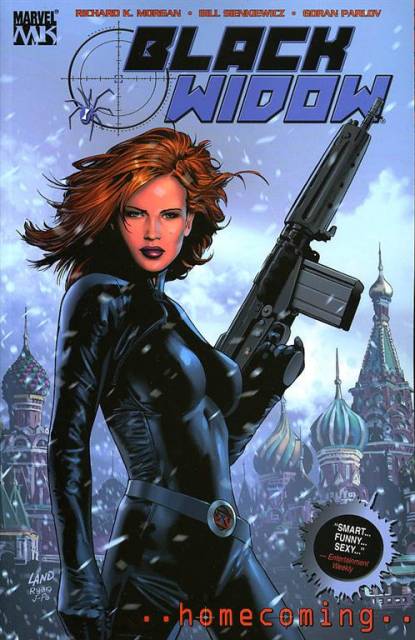 KB: With the influence you had on Black Widow’s characterization and how well the Avengers is doing, do you feel like she is accurately portrayed?
KB: With the influence you had on Black Widow’s characterization and how well the Avengers is doing, do you feel like she is accurately portrayed?
RM: Absolutely not, but what can you expect? I’ve said this before at length to Charlie Jane Anders over at Io9 – the Widow exists as an adjunct of a money-spinning superhero franchise catering to the tastes of 12 to 14 year old boys (and men who’ve somehow managed to grow up and retain a 12 to 14 year old boy heart). As such, she’s the epitome of unthreatening femininity grafted onto a pornstar’s T&A chassis and imbued with a set of plug-and-play boy-hero fisticuff character tics and reflexes. There’s nothing in that for women, nothing much in it even for genuinely grown-up males. The Widow I wrote for Marvel back in the early 2000s was her own woman, older, seasoned, hard as nails and unapologetic about it, centre stage in her own story. And let me tell you, that story flew like a fucking brick – the broad Marvel fanbase hated it. They didn’t like this genuinely empowered (and therefore genuinely feminist) female protagonist, and they voted with their wallets. The arc did disastrously low numbers by Marvel standards. So am I surprised by the version of the Widow that’s now emerged in the movies – hell, no! Just immensely saddened.
KB: Given the chance, would you ever want to return to continue her story?
RM: Are you fucking kidding! I’d love to. Writing Natasha, really letting her breathe, was a total blast! I’d jump at the chance to build a movie around her that did the same things Homecoming did. But there’s no way that’s ever going to happen. Don’t get me wrong, Marvel were great to work for; very professional, very supportive of what I was trying to do, and they really went out on a limb by letting me run with the character for a second arc when the first one had sold so dismally. But in the end, they killed the series for one very simple reason; it was a losing proposition – an expensive auteur project (I mean, we had Bill Sienkiewicz aboard, for Christ’s sake!), and doing dismally downward-spiralling numbers. By contrast, the version of the Widow you see in the movies is pulling in tens of millions of fanboy dollars. I mean, do the math – there’s just no way anyone’s going to let me within a mile of Natasha ever again! :-)
KB: Since you’ve had experience writing for both readers and gamers separately, the idea of bringing your dark fantasy series A Land Fit For Heroes to Steam, iOS, and Android as a gamebook is definitely intriguing to someone who enjoys both. How will a digital gamebook differ from the more traditional “Choose Your Own Adventure” type stories currently available? CYOA stories are typically made for a younger crowd, yet your series offers plenty of mature and controversial themes. Will these remain, and if so, how will they engage the player and the choices they make?
RM: That’s a question I’m not really qualified to answer – I never read the CYOA books back in the day, and I haven’t accessed any of the newer content either (these days I’m so busy I barely have time to read books or play games of any sort, let alone explore whole new formats!)
But my understanding from the brief the guys at Liber Primus have given me is that the vast majority of this stuff is YA-level in content. Land Fit for Heroes is avowedly not – it’s very much an adult fantasy, with adult themes and characters, and it’s as grim as anything I’ve ever written, which is saying something. So there’s that. :-)
 KB: How closely will the gamebook follow the existing story? Do players who have previously read the original have an advantage over newcomers to the series?
KB: How closely will the gamebook follow the existing story? Do players who have previously read the original have an advantage over newcomers to the series?
RM: The story in the gamebooks runs parallel to the main narrative in the novels – there’s some faint crossover with my characters in that some of them will make brief cameo appearances in the gamebook story, but the narrative thread itself follows three entirely new characters, and their adventures are disconnected from the storylines in the trilogy – though what they do and go through will be shown to have influence on the overall turn of events detailed in the novels. What this means for readers who’ve never read my stuff is that they’ll get a different initial angle of entry into my universe; but that won’t disadvantage them in any way as far as the gamebook story is concerned. And of course, if they’re curious about the wider world of the fiction, they can always go off and buy the trilogy after.
KB: What other projects are you currently working on?
RM: I’ve got a new novel up on the blocks at the moment – it’s a return to the universe of my 2007 novel Black Man, but set a good hundred or more years after the events of that story, and on a recently colonised Mars rather than on Earth. It’s called Thin Air and features another genetically modified cast-off protagonist, though a somewhat different and more down-at-heel one than Carl Marsalis in Black Man. I’ve gone right back to the noir wellspring I used in my Takeshi Kovacs books with this one – first person narrative, mean streets, corruption from high to low, a crime no-one wants solved and enemies at every turn. Feels good to be back behind the wheel of one of these!
KB: What sorts of media are you consuming in your spare time and would recommend?
RM: Not a whole lot of spare time to burn right now, I just moved from one end of the country to the other and I’m snowed under with busted deadlines. I am listening to quite a lot of music while I work, though; currently bingeing on 2 Cellos, Health and Cold Specks. And I just discovered an up-and-coming singer song-writer called Isaac Gracie whose single Last Words would make an awesome playout for a movie of my novel Market Forces. I just finished reading Ta-Nehisi Coates’ Between the World and Me, which I’d say is required reading for anyone interested in what’s happening to America at the moment and made me tremble with a father’s rage, and I’m now burning through John Horner Jacobs’ The Incorruptibles which is a superbly fresh-feeling mash-up of fantasy, alternate history and western adventure, the first of a trilogy whose second instalment, Foreign Devils, just came out – I’m running to catch up here! I’ve also been catching up on missed SF movies like Chappie and Ex Machina (both of which I guess I’d recommend seeing but neither of which in the end quite lit my fire) and more noirish fare like Scott Cooper’s Out of the Furnace and Dennis Lehane’s The Drop (both of which are awesome must-see triumphs). Still, sadly, waiting for someone in SF movie making – well, apart from George Miller, that is – to combine the vision and imagination in the former two with the close focus grit and commitment to human realities of the latter. In gaming, I’ve been making do with obsessive replays of The Last of Us, Max Payne 3 and Far Cry until there are enough good games out there to justify the expense of acquiring a next-gen console. At which point, I imagine I’ll be trying Bloodborne.
KB: Finally, where can you be found in various corners of the Internet?
RM: I keep a website at richardkmorgan.com where I try to find time and inspiration to blog at least once a month, and I’m on Twitter as @quellist1. Come on over!
Richard K. Morgan is the acclaimed author of The Dark Defiles, The Cold Commands, The Steel Remains, and Altered Carbon, a New York Times Notable Book that won the Philip K. Dick Award in 2003. A Land Fit For Heroes will be available on Android and ioS, as well as a PC version of the gamebook for Steam in the coming months.


